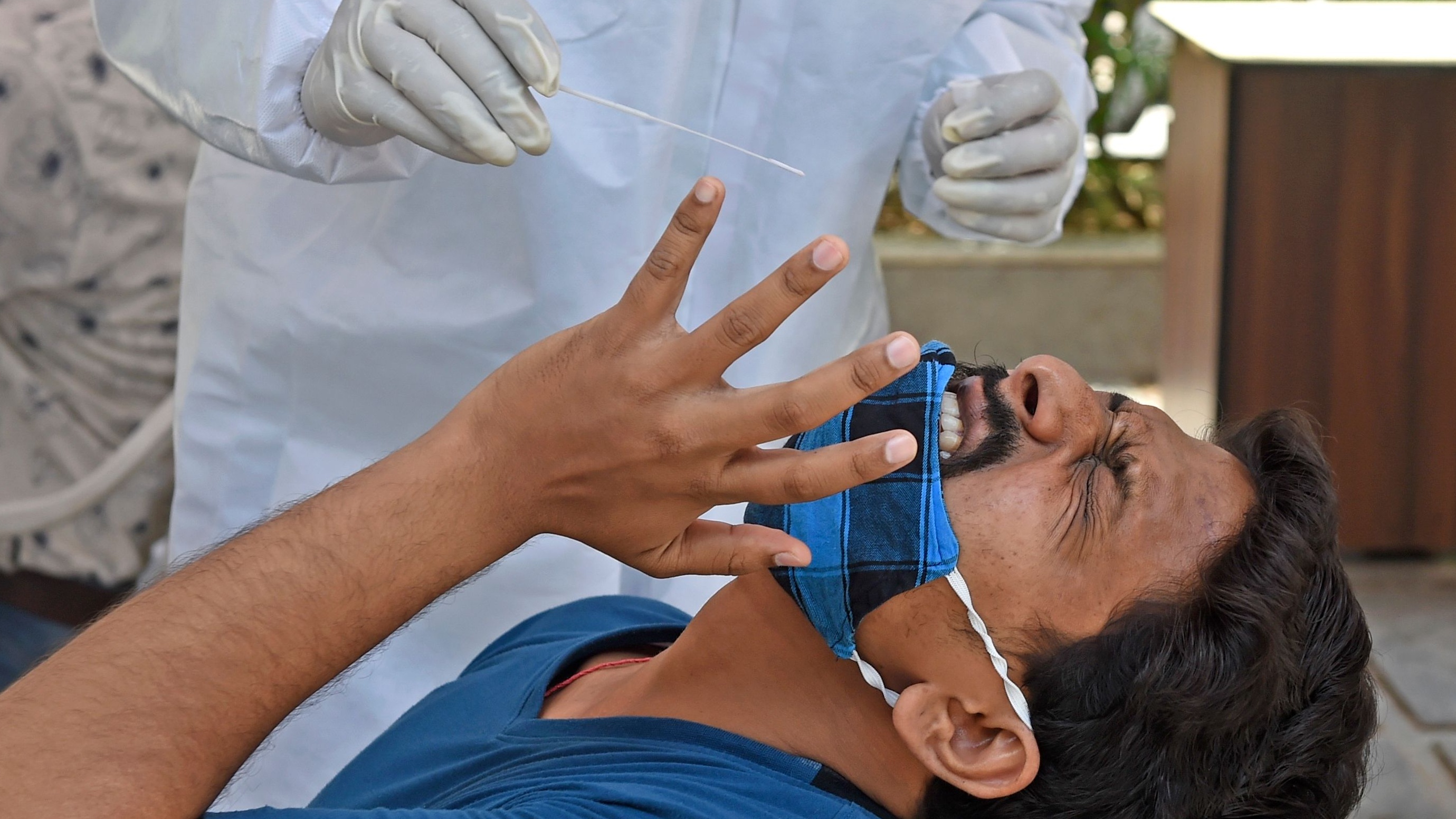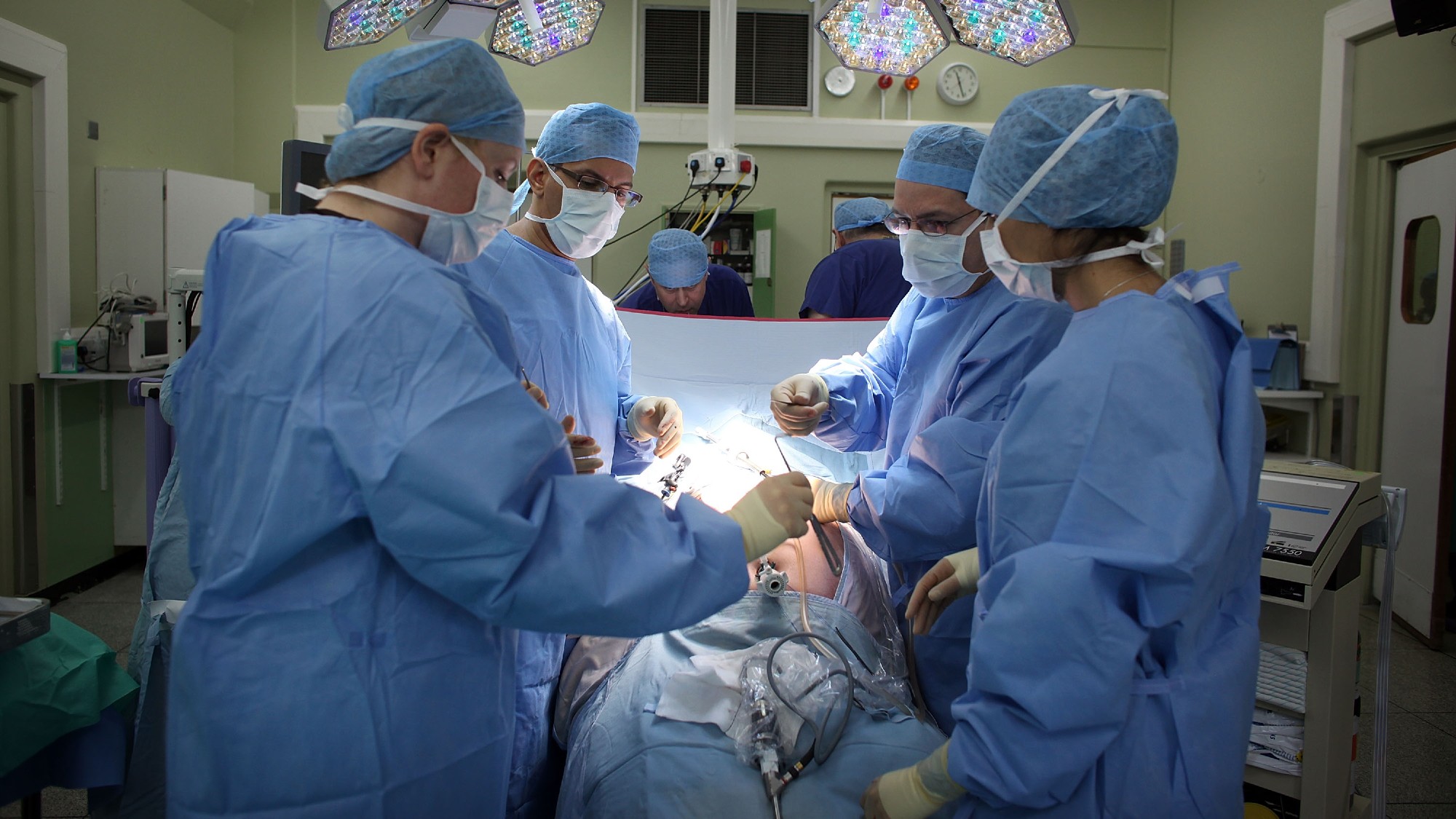What Delhi’s coronavirus outbreak can teach us about herd immunity
Large number of Indians thought to have antibodies raising hopes of avoiding a second spike

A free daily email with the biggest news stories of the day – and the best features from TheWeek.com
You are now subscribed
Your newsletter sign-up was successful
Almost a quarter of Delhi’s 28 million residents may have coronavirus antibodies, making the Indian capital one of the worst hit cities in the world, research has revealed.
A sample of 20,000 people carried out by India’s National Centre for Disease Control (NCDC) found 23.4% had antibodies to the virus, with the majority of infections appearing to have been asymptomatic.
The pandemic last month hit Delhi hard, “pushing the city’s healthcare system to the brink of collapse” and causing many deaths as “hospitals ran out of beds and ventilators”, The Guardian says.
The Week
Escape your echo chamber. Get the facts behind the news, plus analysis from multiple perspectives.

Sign up for The Week's Free Newsletters
From our morning news briefing to a weekly Good News Newsletter, get the best of The Week delivered directly to your inbox.
From our morning news briefing to a weekly Good News Newsletter, get the best of The Week delivered directly to your inbox.
Latest figures show that India has the third highest number of Covid-19 cases in the world, with 1.2m confirmed infections and numbers rising by more than 40,000 a day.
And the “curve of infections is showing no sign of flattening”, with states across the country reintroducing local lockdowns and curfews in an effort to curb the virus’s spread, the paper adds.
The NCDC study suggests that around 180 million Indians, representing almost 15% of the population, may already have developed Covid-19 antibodies. Experts have heralded the discovery as “proof that India is hurtling towards herd immunity”, India Today says.
“Only around six per cent of Delhi's population tested positive for novel coronavirus, but one-fourth of Delhi got immunity. This is herd immunity. These people have immunity even without getting a vaccine,” Dr SK Sareen, director of the New Delhi-based Institute of Liver and Biliary Sciences, told India Today.
A free daily email with the biggest news stories of the day – and the best features from TheWeek.com
“Even as these self-acquired antibodies are yet to be titrated [measured], their presence means that these people were infected and managed to clear the virus,” Sareen added.
A severe lack of testing across India has been blamed for the wide discrepancy between reported cases and the number of people thought to have antibodies, The Telegraph says.
A senior Indian epidemiologist said the findings were “encouraging and could see its cities reach herd immunity by the end of August”.
“In a few weeks, Delhi will attain herd immunity,” Dr Jayaprakash Muliyil told The Hindu. “There are some questions on how long the immunity lasts. I think it will be a long-lasting immunity, but I cannot give you an exact number.”
Most scientists have said that herd immunity would only be reached when 60-70% of the community are protected against the virus, although recent studies have noted that the infection rarely spreads beyond about 20% of a local population.
However, Delhi’s government has said the doubt about the duration of the immune response means that “containment measures need to continue with the same rigour”. Research conducted in the UK found that patients who have recovered from Covid-19 may “lose their antibodies” to the disease within three months.
Scientists at King’s College London analysed more than 90 patients and healthcare workers at Guy’s and St Thomas’ Hospital, London and found antibodies that can defeat the virus peaked around three weeks after symptoms first appeared, before suddenly declining.
Other researchers have focused on T-cell immunity to Covid-19, which is thought to offer longer-lasting protection.
Joe Evans is the world news editor at TheWeek.co.uk. He joined the team in 2019 and held roles including deputy news editor and acting news editor before moving into his current position in early 2021. He is a regular panellist on The Week Unwrapped podcast, discussing politics and foreign affairs.
Before joining The Week, he worked as a freelance journalist covering the UK and Ireland for German newspapers and magazines. A series of features on Brexit and the Irish border got him nominated for the Hostwriter Prize in 2019. Prior to settling down in London, he lived and worked in Cambodia, where he ran communications for a non-governmental organisation and worked as a journalist covering Southeast Asia. He has a master’s degree in journalism from City, University of London, and before that studied English Literature at the University of Manchester.
-
 Local elections 2026: where are they and who is expected to win?
Local elections 2026: where are they and who is expected to win?The Explainer Labour is braced for heavy losses and U-turn on postponing some council elections hasn’t helped the party’s prospects
-
 6 of the world’s most accessible destinations
6 of the world’s most accessible destinationsThe Week Recommends Experience all of Berlin, Singapore and Sydney
-
 How the FCC’s ‘equal time’ rule works
How the FCC’s ‘equal time’ rule worksIn the Spotlight The law is at the heart of the Colbert-CBS conflict
-
 A Nipah virus outbreak in India has brought back Covid-era surveillance
A Nipah virus outbreak in India has brought back Covid-era surveillanceUnder the radar The disease can spread through animals and humans
-
 How music can help recovery from surgery
How music can help recovery from surgeryUnder The Radar A ‘few gentle notes’ can make a difference to the body during medical procedures
-
 Covid-19 mRNA vaccines could help fight cancer
Covid-19 mRNA vaccines could help fight cancerUnder the radar They boost the immune system
-
 The new Stratus Covid strain – and why it’s on the rise
The new Stratus Covid strain – and why it’s on the riseThe Explainer ‘No evidence’ new variant is more dangerous or that vaccines won’t work against it, say UK health experts
-
 RFK Jr. vaccine panel advises restricting MMRV shot
RFK Jr. vaccine panel advises restricting MMRV shotSpeed Read The committee voted to restrict access to a childhood vaccine against chickenpox
-
 RFK Jr. scraps Covid shots for pregnant women, kids
RFK Jr. scraps Covid shots for pregnant women, kidsSpeed Read The Health Secretary announced a policy change without informing CDC officials
-
 New FDA chiefs limit Covid-19 shots to elderly, sick
New FDA chiefs limit Covid-19 shots to elderly, sickspeed read The FDA set stricter approval standards for booster shots
-
 RFK Jr.: A new plan for sabotaging vaccines
RFK Jr.: A new plan for sabotaging vaccinesFeature The Health Secretary announced changes to vaccine testing and asks Americans to 'do your own research'